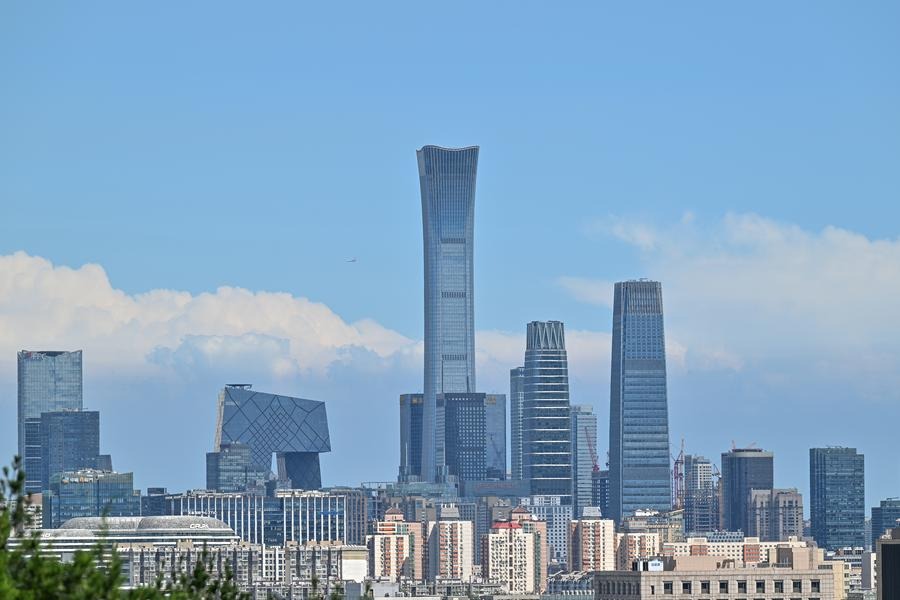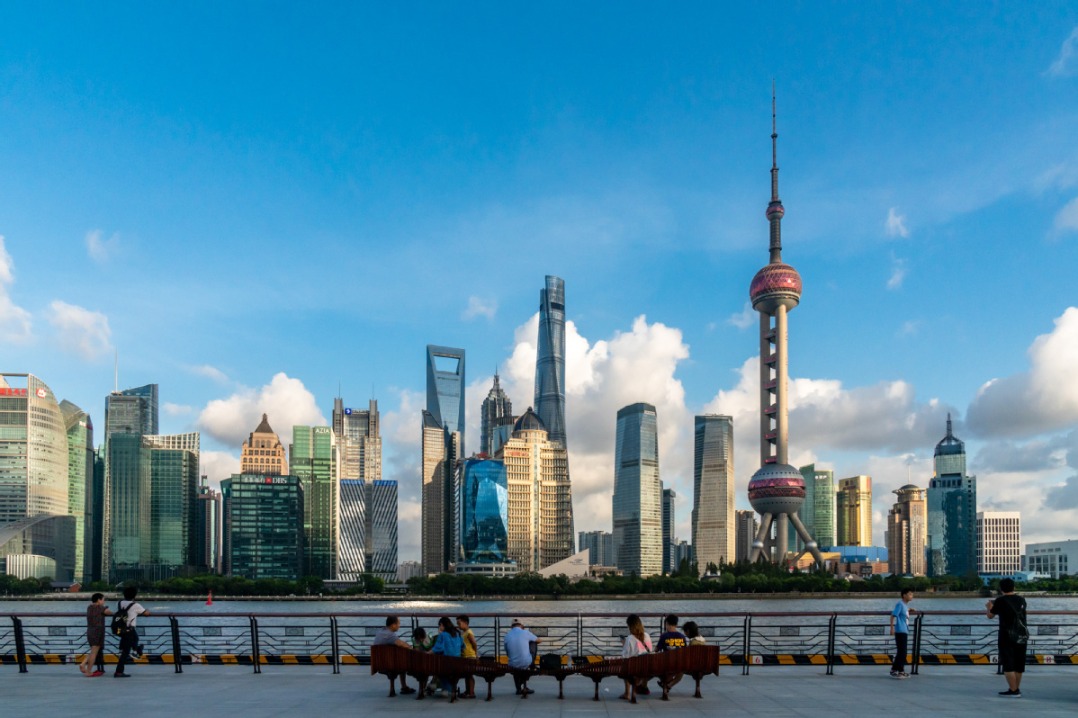Clear-headed appraisal


With 'America First' to continue, Europe needs to comprehensively adjust its trade and energy policies to reduce its dependence on the US
With Donald Trump re-elected as president of the United States, the "America First "policy may continue, leading to a shake-up in the global trade patterns and a significant increase in international trade uncertainty. His threat of higher tariffs has intensified the economic and trade tensions between China and Europe. China-Europe cooperation going forward will be impacted by both US interference and internal divisions within Europe itself.
Already, China-Europe trade relations have endured increasingly severe challenges. In 2024, Brussels introduced 31 restrictive trade and investment measures against China, such as slapping anti-subsidy duties on Chinese electric vehicles. In retaliation, China launched anti-dumping investigations into European brandy. Moreover, the European Union is using numerous non-tariff barriers such as technical standards and intellectual property protection to create obstacles, increasing the cost for Chinese companies to reach European consumers. Meanwhile, China's market access rules for the service and agricultural sectors also limit the growth of European businesses in China. Such frictions not only impact the industries of both sides caught in the crosshairs but also significantly add to the uncertainty in the overall bilateral trade relations.
The trade policies of Trump's new administration will profoundly influence the global trade landscape, particularly affecting China-US-EU triangular trade relations. The proposed universal tariff rate of 10 percent and an additional 60 percent tariff on imports from China will certainly exacerbate the decoupling and disruptions in supply chains between China and the US. In the globalized production network, where China, the US and the EU are deeply intertwined, this situation will also be a severe blow to China-Europe economic and trade relations through the global value chain. According to forecasts from the Chasing International Economic Institute, the imposition of a 60 percent tariff could lead to an 8 percent decrease in China's exports and a slowdown in GDP growth of 1.2 percent. Many European companies in China are involved in production for export to the US, such as European suppliers in the Apple smartphone production chain. The US tariff increases will lead to rising costs and decreased competitiveness for these companies, triggering reduced orders and heightened overcapacity.
The EU's economic and trade cooperation foundation with China is profound and extensive. With its strong manufacturing capabilities, complete industrial supporting facilities, and continuous technological development, China has become a core node in the global supply chain and cooperates closely with the EU. Data of 2024 shows that Chinese products account for 27.1 percent of the EU's daily consumer goods, and over the past five years, the EU's manufacturing imports have become more concentrated in China. In the field of industrial production, European companies are heavily dependent on Chinese components.
In the emerging industry sector, China has particularly stood out in the fields of renewable energy and information and communication technologies. Its photovoltaic module production, for example, has been leading the world for 16 consecutive years, accounting for 70 percent of the global market share and becoming an important source of photovoltaic products for EU countries. In the field of 5G technology, more than half of the 5G wireless access network equipment of eight out of 31 European countries comes from Chinese manufacturers. This reflects the EU's demand for Chinese technology and products in their efforts of green transformation and digital construction.
At the same time, the EU is reducing its dependence on the US supply chain. The US' policy promoting de-globalization has disrupted the original stable cooperation patterns. For instance, in the field of aerospace, the European aerospace company Airbus is actively adopting a "near-shoring "initiative to ensure supply chain security due to concerns about the uncertainty of US trade policies and the risk of supply disruptions.
At present, China-Europe cooperation is influenced by a mix of internal and external factors, with both opportunities and challenges. In terms of external barriers, the protectionist policy of the US has intensified trade frictions, impacted China-Europe supply chains, and compressed the space for cooperation, while its economic and technological restrictions threaten the stability of cooperation. In terms of internal pressure, the political and economic landscape in the EU is unstable, with the rise of far-right, populist forces after the 2024 parliamentary elections, deadlock in French internal decision-making, Germany's energy transition constraints, and the diversification of EU member states' policies toward China, which exacerbates the complexity and flexibility of the EU's policy toward China. Meanwhile, existing disagreements between China and the EU on trade rules have increased the difficulty of deepening their cooperation.
Against this backdrop, China should adopt a multi-dimensional approach to advance its cooperation with the EU. First, in terms of expanding high-level opening up, it is necessary for China to continue improving its business environment, enhance regulatory efficiency, and further expand the opening up of its service sector, such as finance, education and healthcare, to attract high-quality European resources and promote the exchange of technology and management experience and win-win outcomes.
Second, with respect to developing and emerging markets, there is vast room for China-EU cooperation in green development. In terms of renewable energy technology research and development and application, both sides can jointly build large-scale solar and wind energy projects, combining China's manufacturing prowess with the European side's technological innovations to create new trade and investment opportunities. In terms of digital economy cooperation, they should strengthen collaboration in areas such as big data, artificial intelligence and cross-border e-commerce, jointly establishing rules for cross-border data flows and digital trade standards, and building a new platform for bilateral cooperation in the digital era.
Concurrently, China should play an active role in global economic governance and deepening communication and collaboration with the EU in platforms such as the World Trade Organization, the G20 and the Belt and Road Initiative, to jointly resist trade protectionism and create a favorable international institutional and policy environment for China-Europe cooperation. Furthermore, mutual trust and understanding among the people can be enhanced through academic, cultural, and artistic exchanges and other activities, solidifying the public opinion foundation for China-Europe cooperation and fundamentally resolving potential conflicts and misunderstandings.
In summary, China-EU cooperation needs to seek balance and breakthroughs in the complex international environment, by deepening openness, expanding cooperation in emerging fields, and participating in global governance, to achieve mutual benefit and win-win outcomes, and inject new vitality into the global economic recovery and sustainable growth.
Ji Xianbai is a research fellow at the School of Global and Area Studies and an associate professor at the School of International Studies at the Renmin University of China. Chen Xi is an assistant research fellow at the School of Global and Area Studies at the Renmin University of China. The authors contributed this article to China Watch, a think tank powered by China Daily.
The views do not necessarily reflect those of China Daily.
Contact the editor at editor@chinawatch.cn.


































